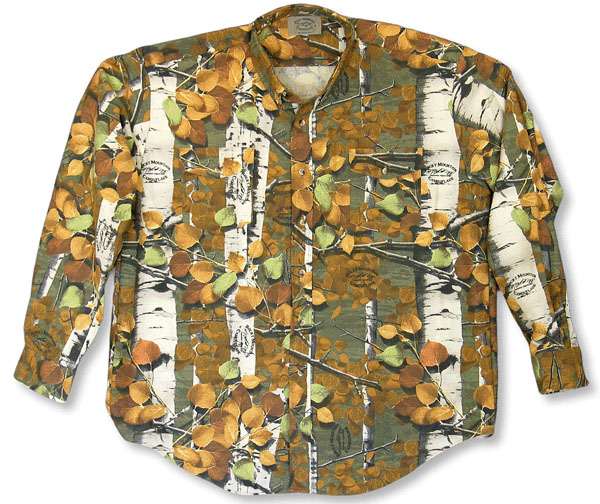Here’s the link: www.nytimes.com/2006/03/26/magazine/carnivore.html
Good stuff! Boy, he covered tons of areas.
I really liked his discovery of the heightened senses aspect of hunting. It helps us see how much awareness of life that we redirect and push down when immersed in citylife or when we only receive our ideas from others rather than finding them out for ourselves.
It’s a big article, too. Longer even than most of mine. Or maybe it seemed long because it had big words and fancy ideas. : )
Overall, it had a great explanation and feel—especially in terms of a cityslicker newbie and a foodie.
A few things caught my eye in the story that I’d like to riff on. But you can’t take these as being the core of the story. I’m not hassling him, just expanding on what he started.
I note he’s coming out with a book, “The Omnivore’s Dilemma,” that includes this article. Offhand, the title seems to be giving away something, seems to be accepting that he’s on the defensive. This to me suggests more the power-moves made by vegetarians (perhaps especially in his Bay Area) than a real dilemma. Every human action brings a dilemma, but omnivorism no more so than others.
(I noticed a weird flaw in the story. Perhaps an indication that it was edited by cityfolk: he writes about aiming at the front leg but the wild pig is found dead with a shot to the head. I made a lucky bad shot like that once. Embarrassing! It renewed my commitment to accuracy even though I already shoot 2″ iron-sight groups at 100 yds—in the field all tolerances loosen up considerably.)
Anyway, near the start he writes something that really caught my eye:
“Irony — the outside perspective — easily withers everything about hunting, shrinks it to the proportions of boy’s play or atavism. And yet at the same time I found that there is something about the experience of hunting that puts irony itself to rout. In general, experiences that banish irony are much better for living than for writing. But there it is: I enjoyed shooting a pig a whole lot more than I ever thought I should have.”
I don’t think irony has much affect on anything—except at cocktail parties. But parties are serious to New Yorkers and BayAreans. And since these folks rule the arts and media the cocktail party becomes an arbiter for careers and public discourse.
He admits that irony isn’t useful in life, but suggests it belongs in writing. Why the split? I say that it’s mostly for cute, ephemeral writing, especially today (it works for Wilde and Vonnegut because they LIVED it).
FYI, irony is the exposure of that which doesn’t add up to its own standard. I don’t think it’s “the” outside perspective. There are better views, such as quiet observation and humility while you learn what’s going on.
Technically speaking, the irony is not in hunting but in out of touch city-dwellers who eat and judge (and legislate about) what they don’t know. So his irony remark has a weird twist to me. It indicates the confusion that results from living with a small town mindset that pretends it’s the center of the universe.
His mention of irony is further interesting to me because irony dominates today’s literary scene. But I think it’s a big part of what has cut literature off from most of the public. Those who are most out of touch with life seem to enjoy it the most: the city elite. But being out of touch is what’s ironic. The judgements that everyday people can respect are trickier and tougher than irony—and funnier.
But as a friend of mine said, insiders and those with experience don’t have the respect they used to (sometimes for good reason, but, especially among the witty cocktail crowd, it’s become a reflex to so much of what people know). One doesn’t appreciate them until one tries to do something real, as our writer discovers.
Then in the middle he mentions:
“…the moral purity of the vegetarian…”
He throws this one off the cuff. It’s assumed. But the vegetarian has only claimed the high road, not earned it. A vegetarian is still involved with animal husbandry, fate—and death. We impact animals greatly in most of what we do—no matter what we eat or wear. Our impact on wild animals in particular is only maybe 5% by way of eating them. Moreover, all our acts and judgements are flawed and impure. No one gets a bye. The question is if we admit it or own up to it. The ritual of hunting lets us know the truth. (Sad that I feel obliged to include a veggie disclaimer when the situation is so obvious, but: To me, veggie/meat-lite is fine as a personal value with societal benefits; purity isn’t one of them. Also, “when in Rome” is the major doctrine in terms of religious diet. That is, our hosts don’t need to know about religious diets nor do we have to adhere to them as guests, that is, they’re not morality-based.)
At the end:
“I knew the true cost of this food, the precise sacrifice of time and energy and life it had entailed. … So perhaps that’s what the perfect meal is: one that’s been fully paid for, that leaves no debts outstanding.”
He writes about gratitude earlier, so who knows what he means here. But we’re always obliged, always indebted, to all of life on the planet. Eating a wild meal merges us in with the rest of life rather than sets us free and clear (except from ignorance and arrogance).
The great French young woman philosopher Simone Weil (died age 32 as a martyr in WW2—how many great young women philosophers have there been? she’s a standout!) said that the French Revolution got it only halfway right: we don’t have rights, we have obligations. We need rights and freedom to fulfill the obligations. They come first.
The hunting article did a good job of getting close to first things. I think that in general that cityfolk are quite close to a renewed sense of such things. They need to be pushed past irony to something new.



